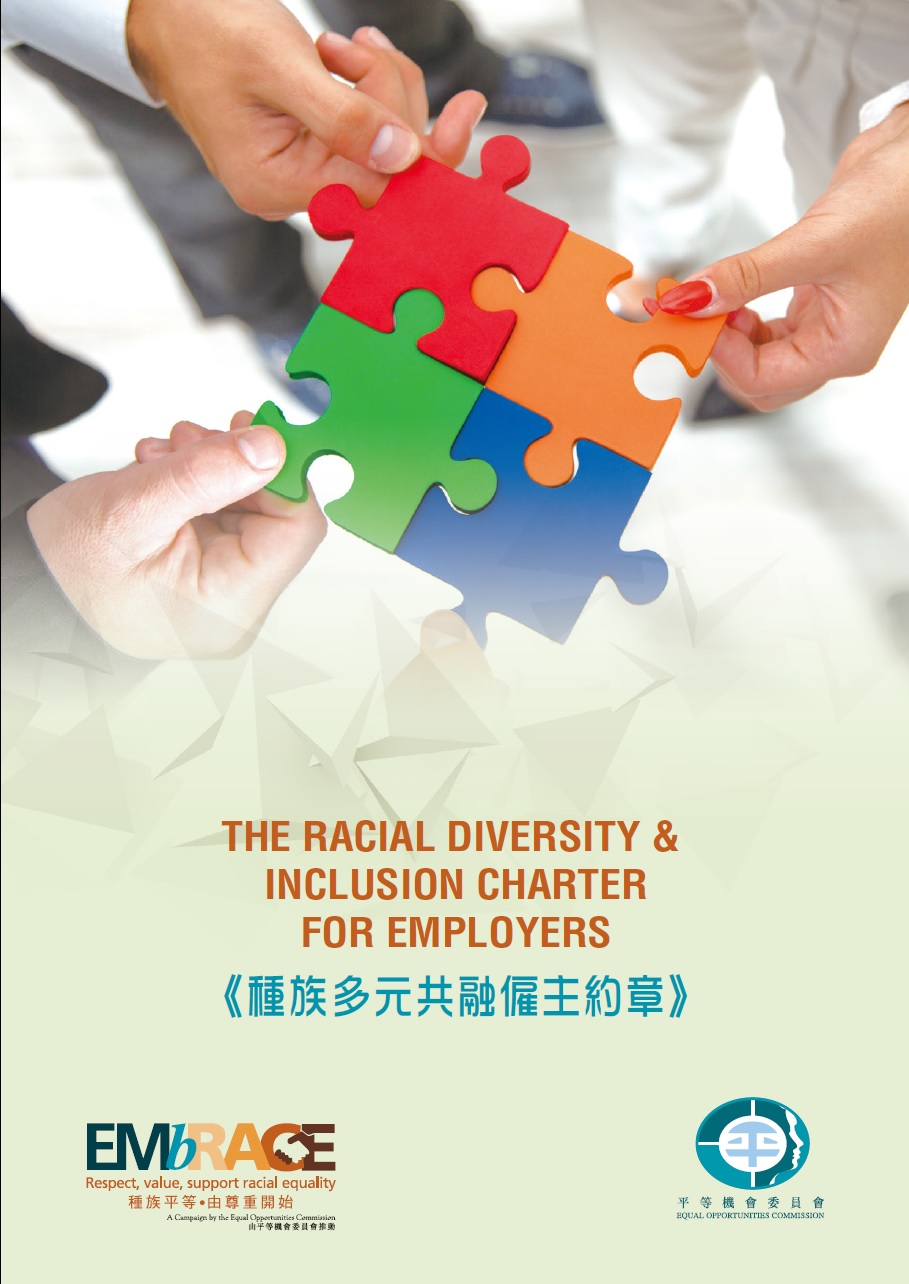|
  | |
Tel: 2511 8211 / Fax: 2511 8142 / SMS: 6972566616538 |
News from the EOC
Issue 191 | 9 August 2018 |
中文版

The EOC is now accepting applicatons until 3 October 2018 for its latest educational programme, “Equality for All: ‘Tally & friends’ Storytelling Competition & Workshops”. Following the launch of the children’s books series,
Tally & friends by the EOC last October, the Commission is organising the programme to further promote messages of equality, diversity and inclusion among children.
The competition is divided into five categories, namely Pre-School, Lower Primary, Upper Primary, Team and Sign Language. Participants are required to submit a video of themselves telling a story from the
Tally & friends series or a new story based on its characters. Shortlisted contestants will be invited to compete at the finals at Lecture Theatre, Hong Kong Central Library on 10 November 2018 and
have the chance to win a trophy and cash prizes up to HK$3,000.
In addition, the EOC will organise a series of free extension activities throughout October, including Parent and Child Storytelling Workshops, Chinese and English Storytelling Workshops, and an Introductory Sign Language Workshop with the support of St. James’ Settlement, Hans Andersen Club, Books & Beyond Reading Club and Lutheran School for the Deaf.
For more details, please click the link below.
Read the storybooks on the Tally & friends mini-site
Learn more about the competition and free workshops
Apply online for the competition
Apply online for the workshops
*********************************************

Continuing its commitment to driving businesses to promote racial equality in the workplace, the EOC has launched the Racial Diversity and Inclusion Charter for Employers. The Charter consists of nine guidelines based on the Race Discrimination Ordinance (RDO) as well as the Code of Practice in Employment under the RDO and covers three areas, namely policy, culture and work environment. It aims to provide best practice suggestions for businesses looking not only to demonstrate their dedication to building an inclusive workplace, but also to set concrete goals and achieve tangible results.
“Employing and grooming ethnic minority talents is a win-win situation for all”, says EOC Chairperson, Prof Alfred CHAN Cheung-ming. “Equipped with the unique dual perspective of their own culture as well as that of a Hong Konger, ethnic minorities can greatly add to the creativity and productivity of an organisation. What’s more, the non-Chinese population is relatively young and growing and organisations can benefit from tapping into this valuable resource pool, particularly in light of the ageing population in Hong Kong.”
Interested organisations can fill out the online form to indicate their intention to adopt the Charter. The EOC will then contact them to formally sign the Charter and act as advisor to help with the implementation of the suggested practices. Signatories can also use the dedicated Racial Diversity & Inclusion logo in their publications and job advertisements.
Learn more about the Charter
Read the Code of Practice on Employment under the RDO
*********************************************

In response to allegations made during a public hearing at a recent meeting of the Legislative Council’s Panel on Constitutional Affairs that the legal assistance provided by EOC was limited, Prof Alfred CHAN Cheung-ming, Chairperson of the EOC, published an online article on Stand News and InMedia on 23 July to address misguided views about the Commission’s Legal Services Division (LSD) and explain its scope of work.
Under the current anti-discrimination ordinances, a complainant can apply for legal assistance from the EOC when the complaint cannot be resolved through conciliation. Since whether to apply for legal assistance or not is ultimately a decision on the part of the complainant and beyond the control of the EOC, the number of such applications should not be the yardstick for measuring the LSD’s performance. Indeed, the figure does not reflect the full picture of the LSD’s work, which encompasses legal representation for successful applicants, legal advice to enquiry and complaint-handling staff, vetting of contracts and agreements, drafting of Codes of Practices, as well as review of anti-discrimination laws.
The Legal and Complaints Committee (LCC), operating since the establishment of the EOC and composed of the EOC Chairperson and Members of the EOC Board, is responsible for reviewing all applications for legal assistance. Consideration is given to whether or not the case raises a question of principle, strength of the evidence, and whether the case has the potential to set an important legal precedent, among other factors. From 2015 to 2017, the EOC received 112 applications under the four anti-discrimination ordinances, 57% of which (i.e. 64 cases) were approved by the LCC, a percentage significantly higher than that registered by the Legal Aid Department (i.e. 30%) in processing similar applications from 2014 to 2016.
Members of the public who are interested in knowing more about the EOC’s legal services are encouraged to visit the Commission’s official website.
Read Prof Chan's article in full (Chinese only)
Visit the EOC website and learn more about its legal services
*********************************************

The EOC submitted its views to the 96th Session of the Committee on the Elimination of Racial Discrimination (CERD) on the Third Report of the Hong Kong Special Administrative Region under the International Convention on the Elimination of All Forms of Racial Discrimination (ICERD) last month, ahead of the hearings on 10 and 13 August to be conducted by CERD in Geneva to assess the implementation of ICERD in Hong Kong.
In its submission, the EOC highlighted a range of persistent obstacles to racial equality and inclusion in Hong Kong, from the concentration of ethnic minority students in a small number of schools (which gravely affects their integration into mainstream society) and the lack of a full, standardised set of textbooks for learning Chinese as a second language to unregulated hate speech across social media, unjustifiable Chinese proficiency requirements in the job market, and limtiations with the Race Discrimination Ordinance (which currently does not apply to the exercise of Government functions and powers).
In the long run, there is a need for a central department or bureau in the Government that proactively coordinates all policies relating to minorities, instead of having separate departments answer to their needs in a fragmented, haphazard and inconsistent manner, as is currently the case. As a statutory body committed to creating a pluralistic and inclusive society, the EOC will continue to monitor and work closely with the Government in eliminating systemic discrimination and empowering ethnic minorities in Hong Kong.
Read the EOC’s submission to CERD
About the CERD
*********************************************
Visit our website or download the EOC mobile app (Apple App Store / Google Play) to stay updated on the EOC’s work and positions, and to review our press releases and calendar training. Also, stay tuned on other equal opportunities issues and community initiatives by visiting our community resources and community events pages for information from our community partners, including publications, survey reports, publicity campaigns, and upcoming conferences.


 The EOC is now accepting applicatons until 3 October 2018 for its latest educational programme, “Equality for All: ‘Tally & friends’ Storytelling Competition & Workshops”. Following the launch of the children’s books series, Tally & friends by the EOC last October, the Commission is organising the programme to further promote messages of equality, diversity and inclusion among children.
The EOC is now accepting applicatons until 3 October 2018 for its latest educational programme, “Equality for All: ‘Tally & friends’ Storytelling Competition & Workshops”. Following the launch of the children’s books series, Tally & friends by the EOC last October, the Commission is organising the programme to further promote messages of equality, diversity and inclusion among children. Continuing its commitment to driving businesses to promote racial equality in the workplace, the EOC has launched the Racial Diversity and Inclusion Charter for Employers. The Charter consists of nine guidelines based on the Race Discrimination Ordinance (RDO) as well as the Code of Practice in Employment under the RDO and covers three areas, namely policy, culture and work environment. It aims to provide best practice suggestions for businesses looking not only to demonstrate their dedication to building an inclusive workplace, but also to set concrete goals and achieve tangible results.
Continuing its commitment to driving businesses to promote racial equality in the workplace, the EOC has launched the Racial Diversity and Inclusion Charter for Employers. The Charter consists of nine guidelines based on the Race Discrimination Ordinance (RDO) as well as the Code of Practice in Employment under the RDO and covers three areas, namely policy, culture and work environment. It aims to provide best practice suggestions for businesses looking not only to demonstrate their dedication to building an inclusive workplace, but also to set concrete goals and achieve tangible results. In response to allegations made during a public hearing at a recent meeting of the Legislative Council’s Panel on Constitutional Affairs that the legal assistance provided by EOC was limited, Prof Alfred CHAN Cheung-ming, Chairperson of the EOC, published an online article on Stand News and InMedia on 23 July to address misguided views about the Commission’s Legal Services Division (LSD) and explain its scope of work.
In response to allegations made during a public hearing at a recent meeting of the Legislative Council’s Panel on Constitutional Affairs that the legal assistance provided by EOC was limited, Prof Alfred CHAN Cheung-ming, Chairperson of the EOC, published an online article on Stand News and InMedia on 23 July to address misguided views about the Commission’s Legal Services Division (LSD) and explain its scope of work. The EOC submitted its views to the 96th Session of the Committee on the Elimination of Racial Discrimination (CERD) on the Third Report of the Hong Kong Special Administrative Region under the International Convention on the Elimination of All Forms of Racial Discrimination (ICERD) last month, ahead of the hearings on 10 and 13 August to be conducted by CERD in Geneva to assess the implementation of ICERD in Hong Kong.
The EOC submitted its views to the 96th Session of the Committee on the Elimination of Racial Discrimination (CERD) on the Third Report of the Hong Kong Special Administrative Region under the International Convention on the Elimination of All Forms of Racial Discrimination (ICERD) last month, ahead of the hearings on 10 and 13 August to be conducted by CERD in Geneva to assess the implementation of ICERD in Hong Kong.